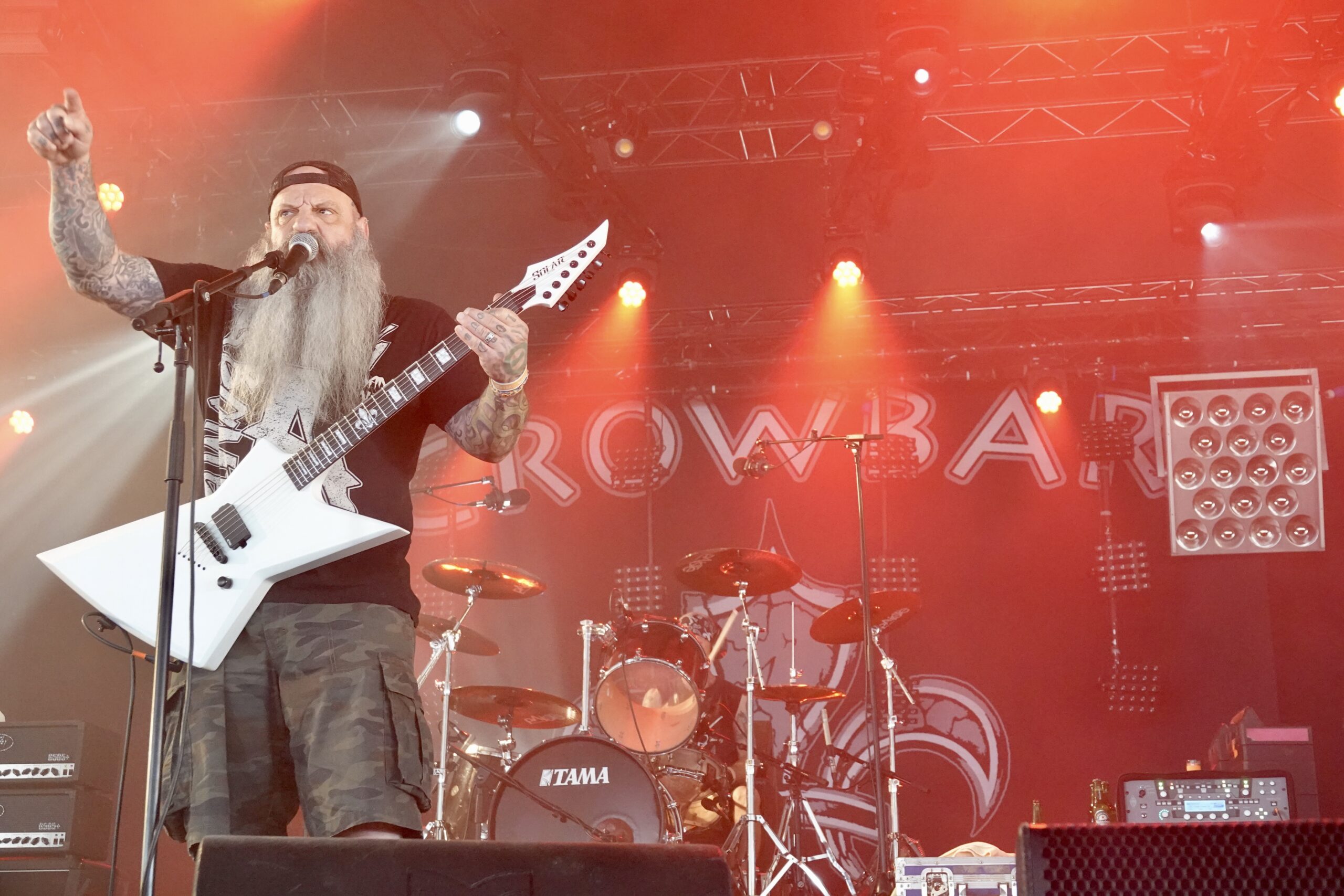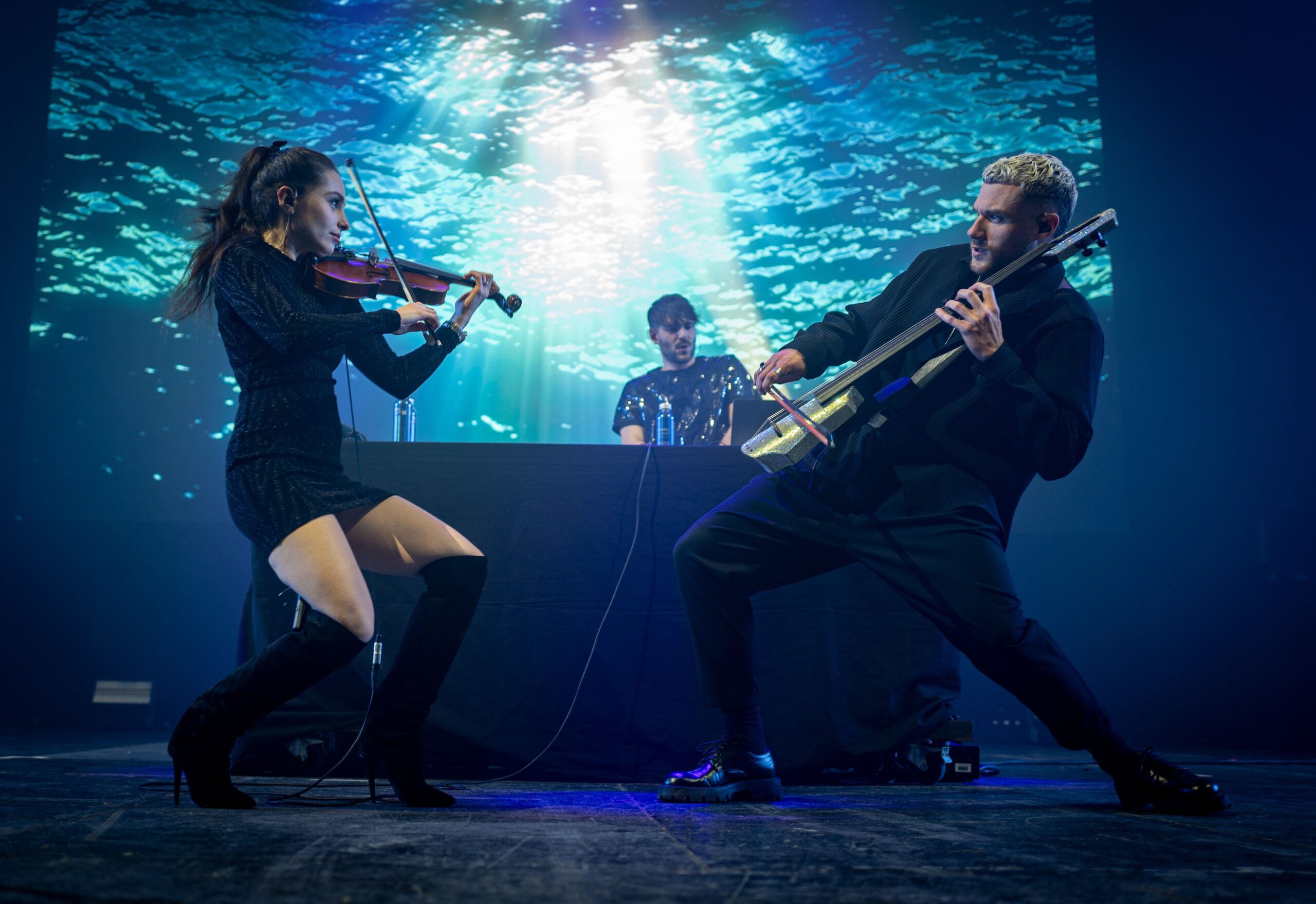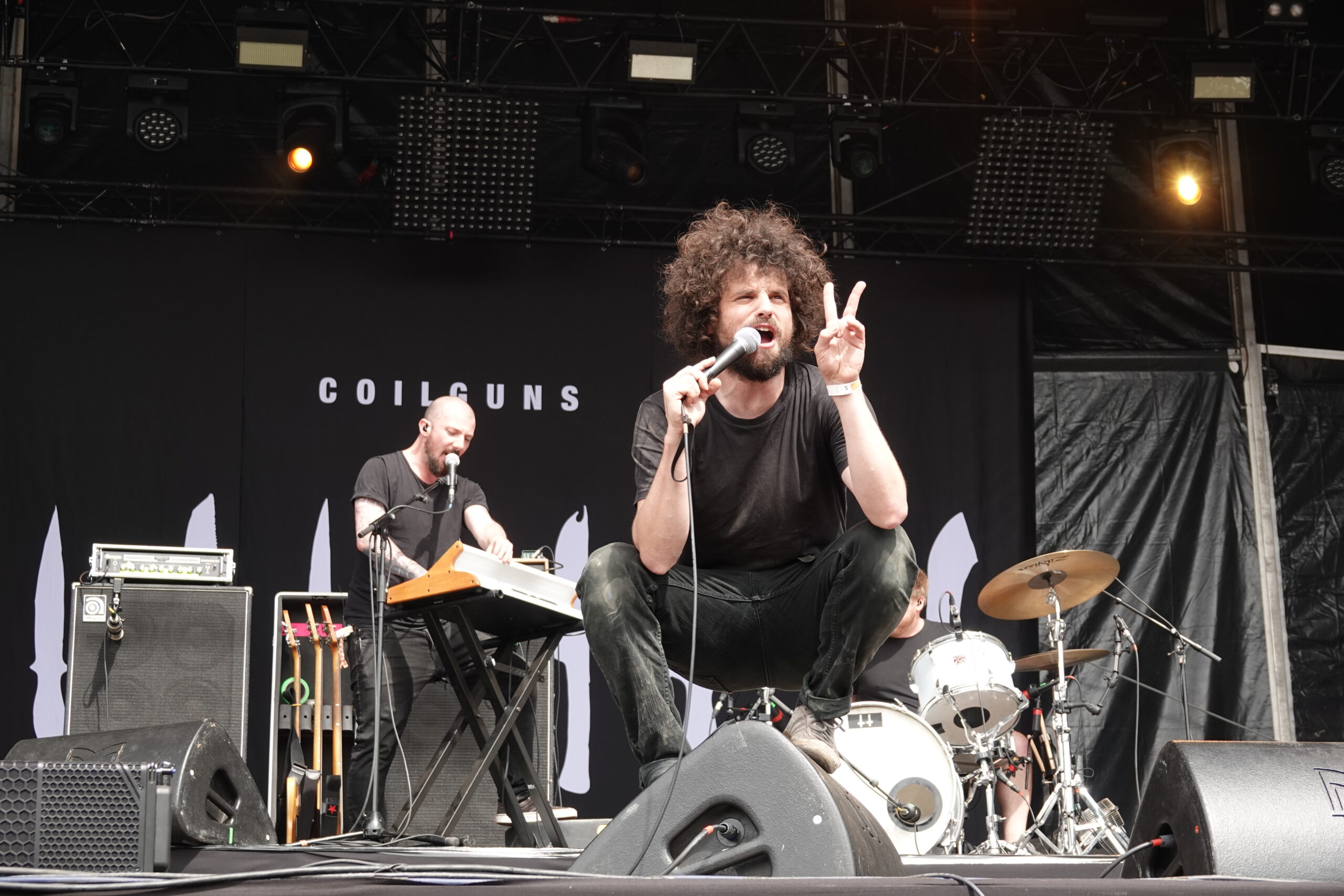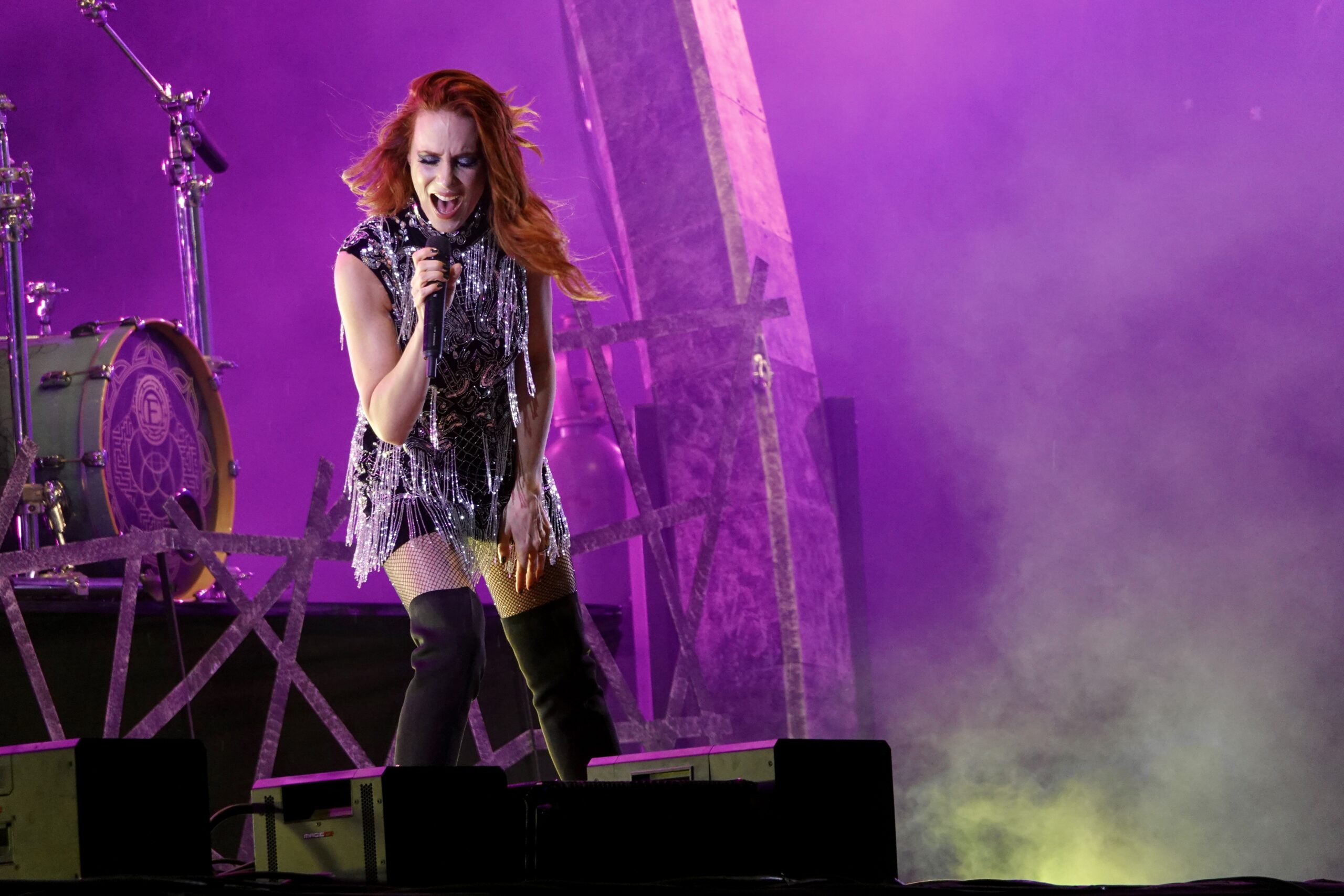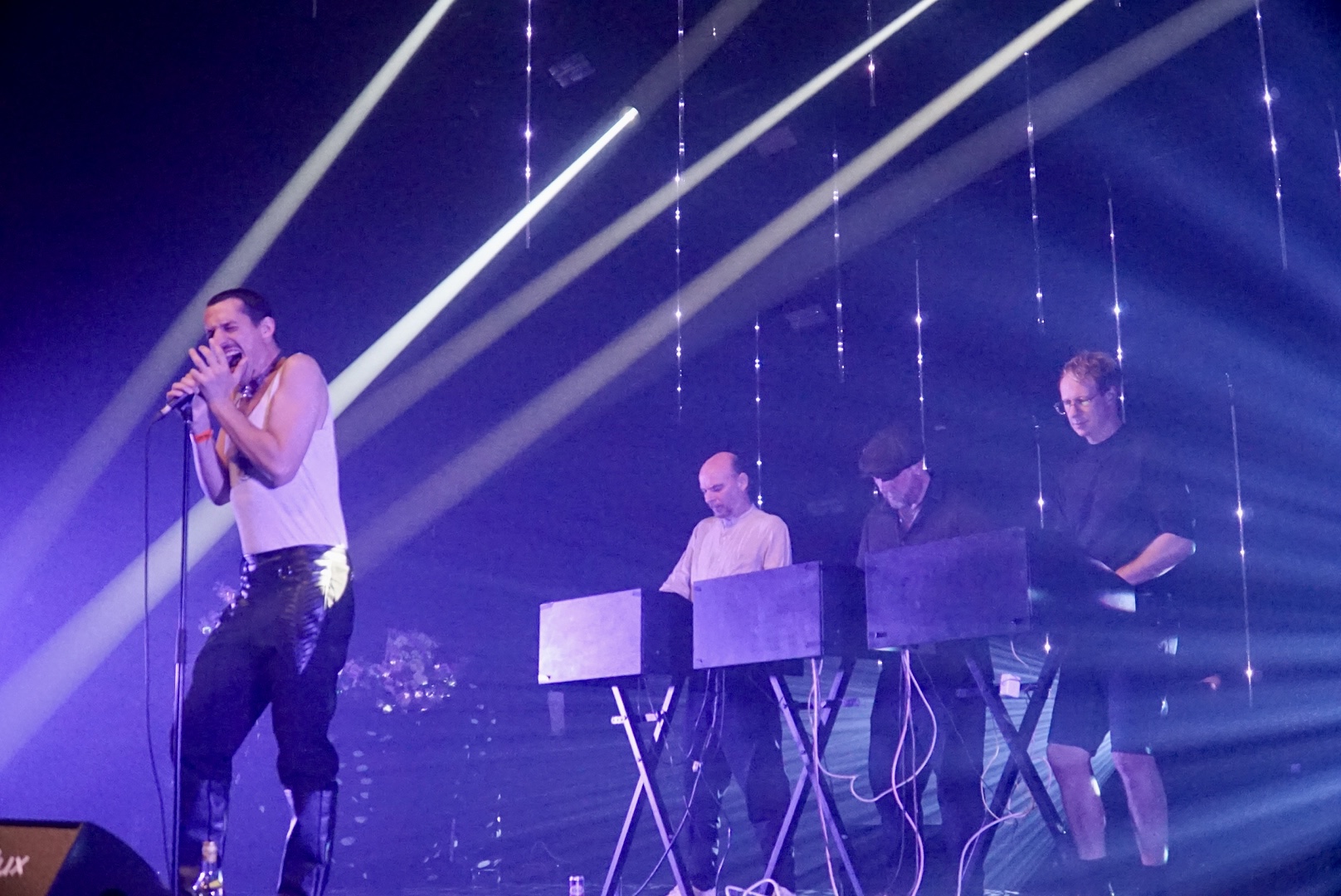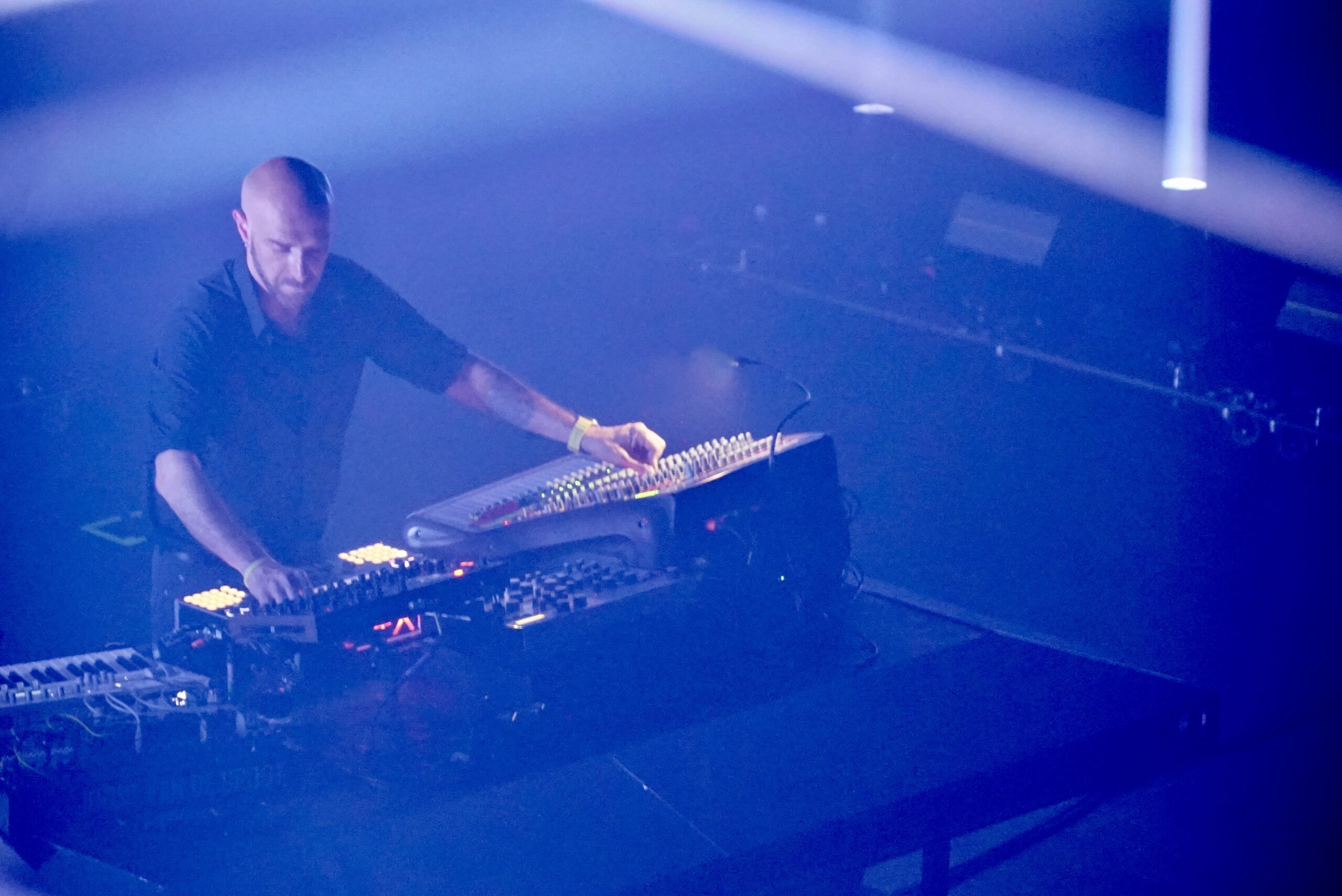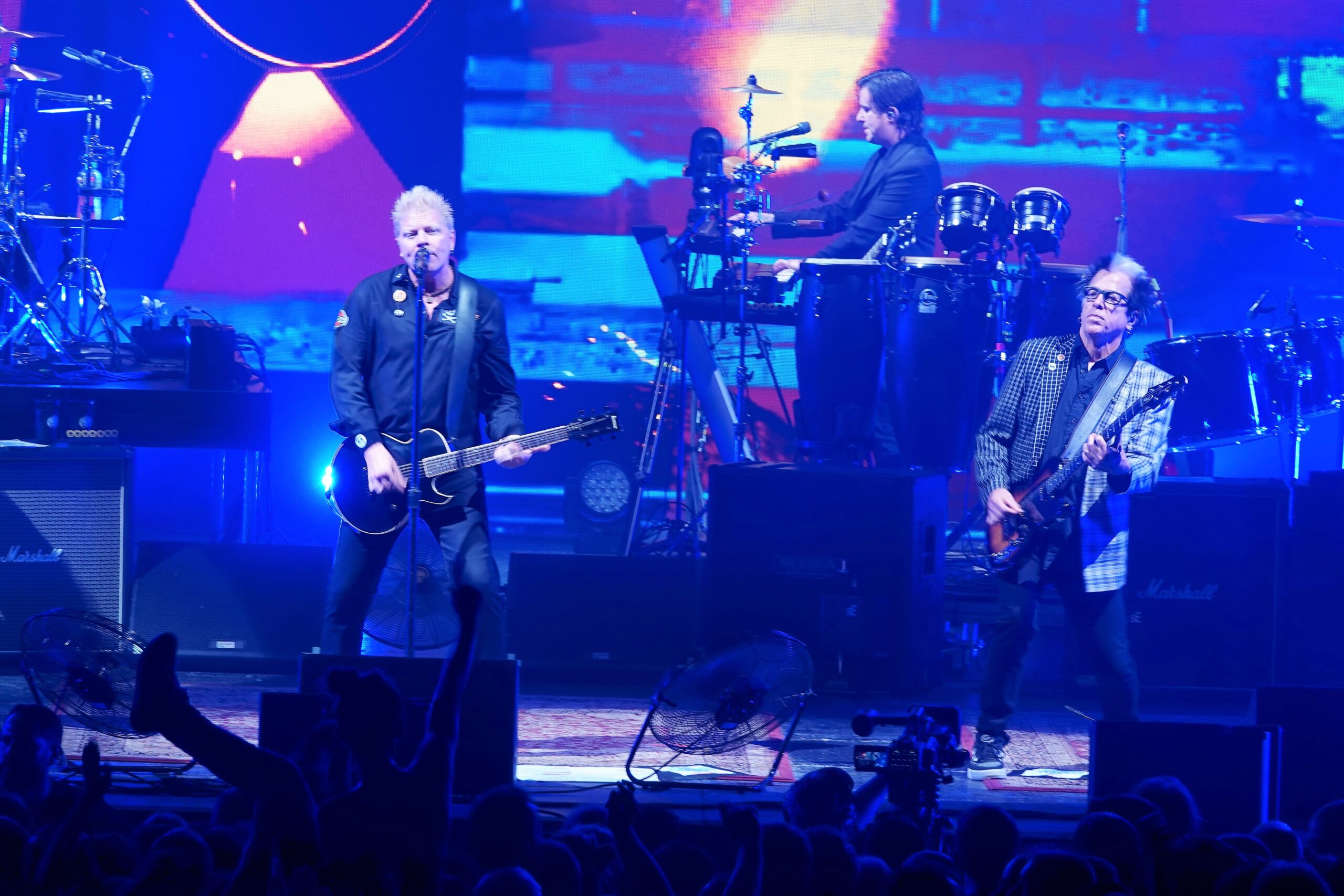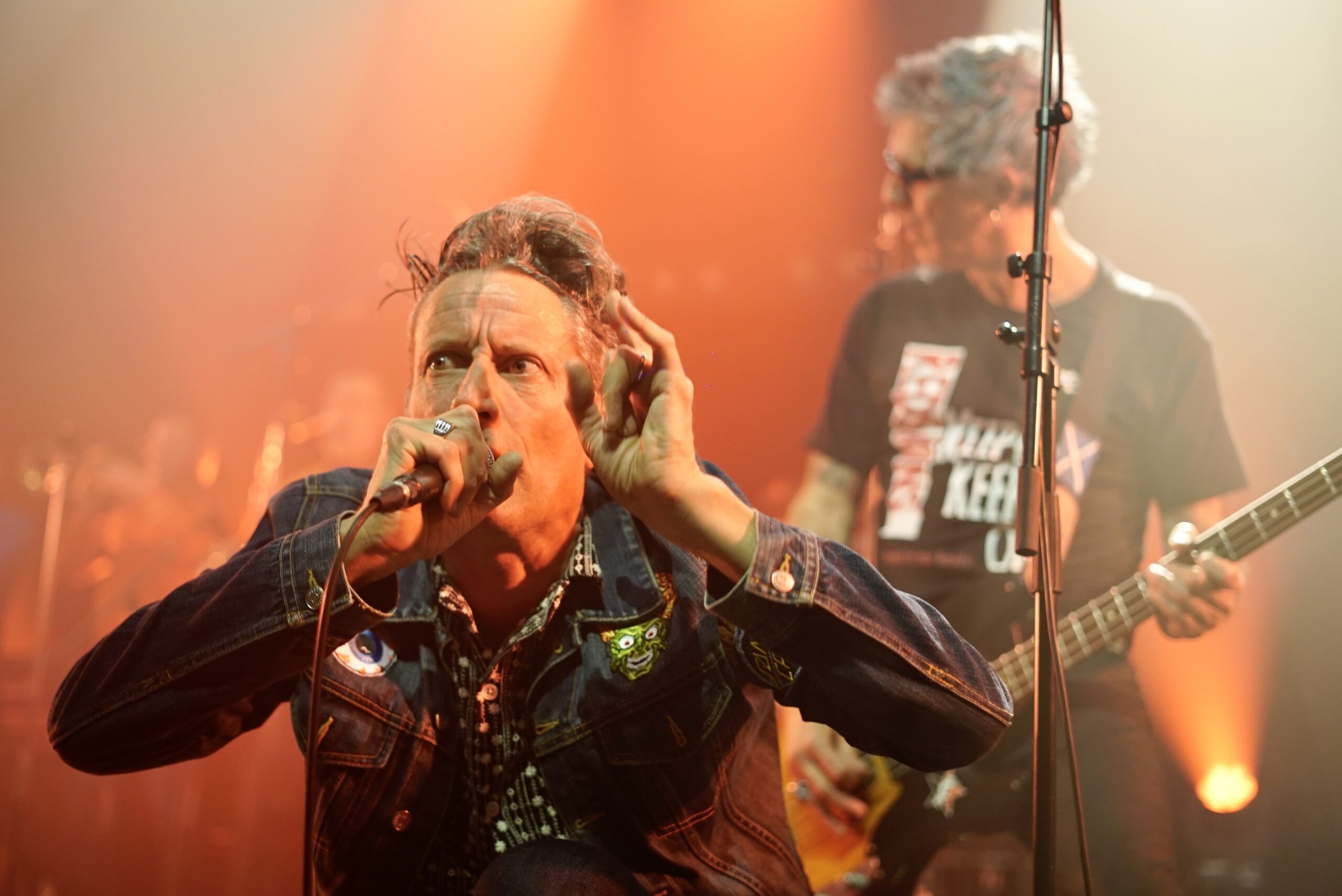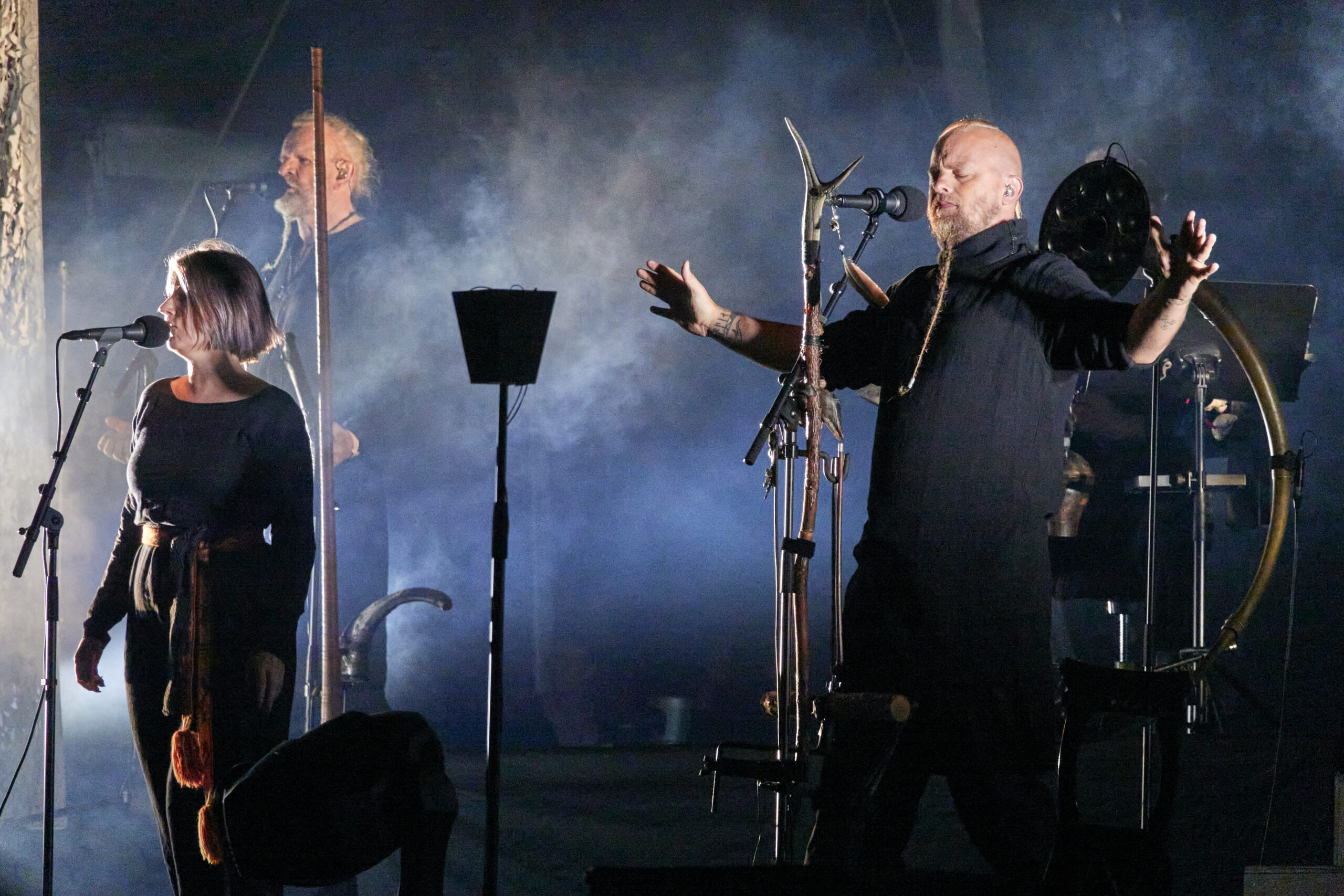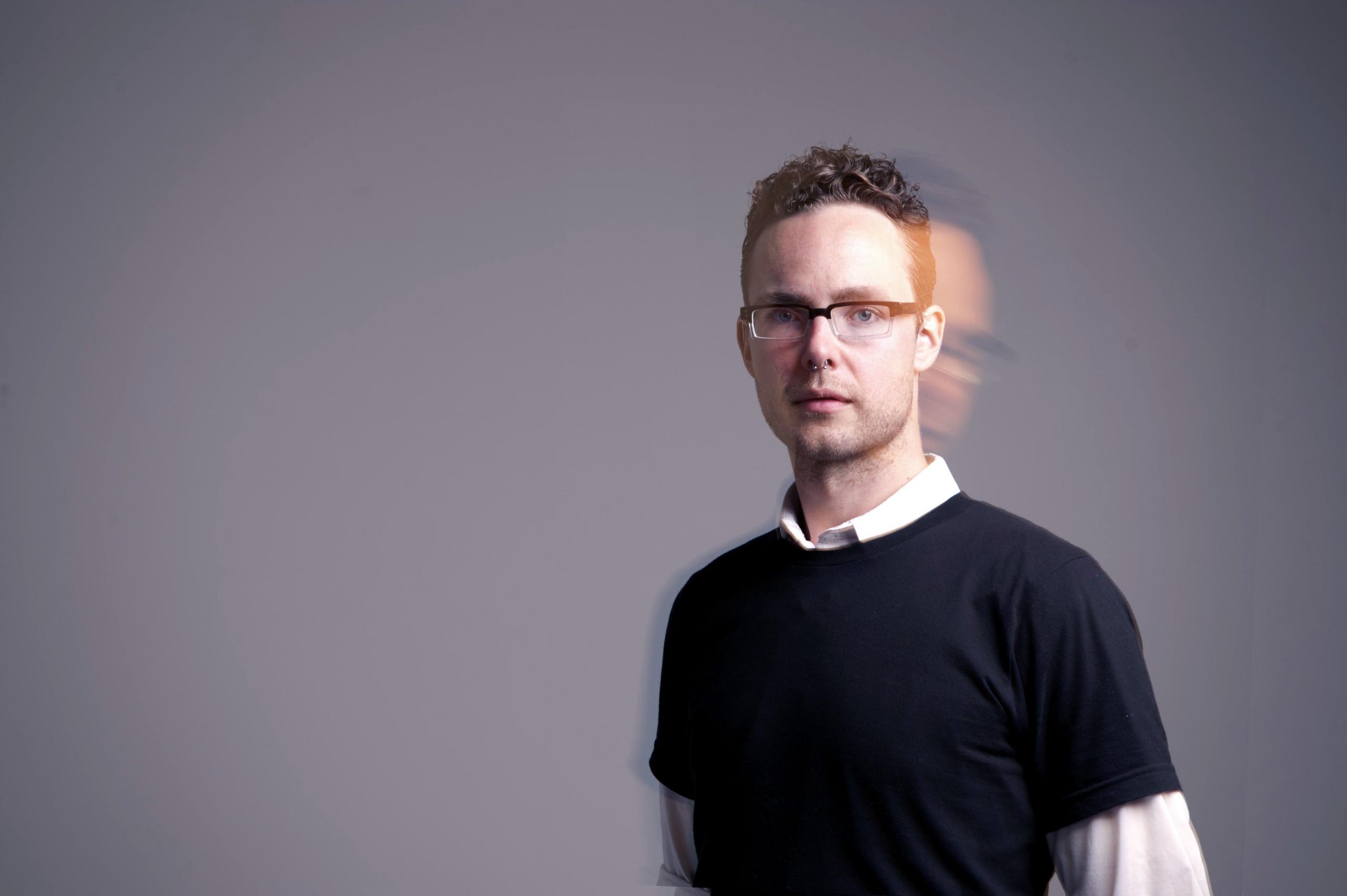Canadian Ian William Craig emerges from his silence almost two months after the release of his masterpiece, Red Sun Through Smoke (read our detailed review here). He looks back on the tragic circumstances of its recording, details his unique modus operandi, and announces a significant change of direction for his upcoming albums. An enthralling encounter with a truly original artist, as honest as he is generous.
Ian William Craig, the man who knew how to give shape to time and memory, recorded his splendid last album, Red Sun Through Smoke, over two tragic weeks.
Here is the story.
It is August 2019, and Craig has committed to recording an album. He chooses to do so in an isolated place. It is somewhere full of memories for him: his grandfather’s house in Kelowna, a small town surrounded by forest in British Columbia. His grandfather, suffering from dementia, has for years been living across the street in a medical facility. While working on the recording, Craig can visit his grandfather and use the piano that no one has touched in ages. After a few days of work, however, Craig receives a call from his parents: his grandfather is in palliative care. This is the end. The parents come to join their son and urge him to continue recording his album: life must go on. Craig’s grandfather dies after a week.
Throughout this already harrowing sojourn, Kelowna is surrounded by a cataclysmic fire which turns the sky grey and the sun red: red sun through smoke. It is the fire and smoke which have precipitated the grandfather’s demise: the older man’s lungs couldn’t take the burden.
Through all of this, Craig continues his work, taking refuge in the love that he feels for a young woman – a love requited, as he only learns with the young woman about to leave for several months in France.
Everywhere in this magnificent album can be found mourning, the anguish of death, and love both happy and thwarted. The album is the fruit of tragic circumstances – circumstances nevertheless apposite for Craig’s inspiration and creative methods. His aesthetics of failing memory, serene disintegration and oblivion are imbued, in Red Sun Through Smoke, with very special meaning.
Intimate and epic, Red Sun Through Smoke is a powerful record, steeped in love and grief, darkness and hope.
How are you ? You just went through a hard time…
I am OK, thanks, and gratefully so given our current situation. These are strange times.
How do you feel about your record, now that it is out ?
I’m glad it’s come out a couple of years (ish) removed from the time of its recording, since now I’m able to be sort of removed from those particular spaces. The environmental concerns that the record is steeped in reveal challenges that face us all rather existentially, but at least the emotional tinge has worn off enough! And now, strangely, it’s a record made in quarantine that has to be listened to under the same conditions. Bonkers.
It seems to me that for the first time in your discography, this album tells a story – the terrible story of what you went through during its recording. “Random” seems like an opening title song. “Condx QRN” is as menacing as the fire that surrounded Kelowna. “Mountains Astray” sounds like a love song. The lyrics of “Supper” speak for themselves. “Stories”, meanwhile, sounds like a closing song. Did you conceive this album in narrative terms?
Stories are an extremely powerful binding force for humans I think. There is a magic there that allows us to peer into chaos and find something useful there. We look for them wherever we can find them. They can turn a bit dangerous though. For example, I have a particular story that I tell while making things of the way a record should play out. It’s not necessarily a literal thing, potentially it’s even just a way that sound builds and releases tension over time. I hear this same through-line in pretty much all my work. In some ways it’s the mechanism that I use to determine whether or not something is ‘finished’ but it’s weird when you see it recurring over and over again, and can form a crutch to laze against.
It seems that this is particularly true, concerning your last album, given the circumstances of its recording. That crutch must have been very helpful.
Well, Red Sun Through Smoke is a weird one since I was attempting to subvert that arc, purposefully going into the recording process with no real ideas or samples or melodies or lyrics. Ironically, doing that seems to have cleared the landing pad for all of the other events and their related stories that wanted to gather there. When it came time to assemble the record, the pieces just seemed to want to fit this way. So in fact I conceived this record with a bit of an anti-narrative in mind going into the process, and in the act of simply working and not thinking (since there really wasn’t time to think there), ended up with something that is admittedly explicitly story-based. Maybe you really can’t escape yourself. Funnier still is that the story of it has really run away with itself, like a game of telephone. One part shifts here, gets copied, shifts again, loses cohesion, is amplified. It’s all based in truth though, and correcting everything exactly is like playing whack-a-mole, so I’ll leave it be.
Do you associate each song of the album with a memory ?
I tend to try and work from the general to the specific when making a record, and build the whole thing up at once. Obviously you’re going to dive into particular moments when needed, but I don’t remember one entire piece conjuring anything specific as a whole. When I listen back, I can indeed pinpoint exact moments that occurred very palpably – and actually, the full recordings are full of the intervention of moments, like phone calls or my parents coming back to the house – but it’s all dreamlike and blurred. I think Weight is probably the most evocative for me if I force myself to be specific: there are references to places my sister and I used to play as children with our grandfather for example.
It took you several years to record “Centres”, and two weeks to record “Red Sun”, if I’m not mistaken. How does the time you spend on an album influence its nature?
I remember one rather embarrassing conversation I had with my best friend, saying something to him along the lines of “I don’t want to make a record, I want to make a statement.” This makes me cringe in retrospect. I was referring at the time to what eventually became Centres. It was going to be My Big Thing. My creative process at that time was a large ramshackle creature I was perpetually glueing things to and fixing as it lost parts both superfluous and essential whilst lumbering its way to wherever it was going. Turns out when you use the creative process to understand the world, you are necessarily going to be a few steps behind what it is that you’re expressing, so every new idea I had was excitedly forced back into what was going to be my grand thesis statement. It also turns out doing things this way means nothing will ever get finished, since the process can just keep perpetuating itself. Maybe finishing isn’t the point, but Centres was only finished because a new record deal needed a record, and I would say that it was just in time since I was about to poke at it to death. In retrospect, I think its main idea is in how wrought it is, and that was appropriate given the material.
Your creative process was very different with Red Sun Through Smoke though…
It was the opposite – in fact I was worried it was going to sound too unfinished or unworked, but doing anything other that what I did seemed decorative, so even though it also took some time to come out it was all very quick. I think its main idea is in its compressed nature, both temporally and emotionally. Given too much time, I think anything can collapse, and it’s been interesting to make work for long enough now to apply different kinds of time to things. Time is a kind of tool just like anything else, and so I suppose the trick is knowing which kind to use for the given situation.
Are you a Proust reader? The reason for this question is that I’ve been absorbed concurrently in reading Proust and in listening to your music. Your two works draw their material from an aesthetic investigation of memory, and of time – but while Proust uses all his energy to recover lost time, to cure that loss, you seem to sublimate the very notion of loss.
Sooooo funny thing about this question: I am shocked that you’re the first one to ask and also I have been dreading it! All through art school people would talk about the Proustian Expanse whenever memory was discussed, and though I got rather obsessed with/inspired by the notion, even referencing it here and there, I have to sheepishly admit to you that I have only made it through about half of the first book of In Search of Lost Time. I have tried a few times. I am a fraud, I can admit it. It’s always a moving experience when I dive in, and I couldn’t exactly tell you what makes me stop each time; I would hate to chalk it up to my ever dwindling attention span but that’s probably part of it. Maybe I should finally jump on it now with this strange expanse of time we all find ourselves in.
How do you compose a song? When you’re immersed in it, do you know how the song is going to sound? Do you know more or less precisely the form that the song will take, or do you rely on the unexpected and the serendipitous?
There’s always a conversation that you want to enter into as a composer. Just like good conversations, you have to be open to having your mind changed and to creating a space together with another person. So perhaps it’s unfair to say as I once would have that I have no idea where I’m going when I’m composing, but I think the best pieces I’ve ended up with are the ones where I’ve had less of a pre-conceived notion about them to begin with and the piece was allowed just as much room to do what it needed to as I had. That’s more or less why I’ve built unpredictability into my creative process.
So the unpredictability works as a creative motivator for you?
Strangely, I’ve learned the unpredictability gained from a particular process starts to coalesce around particular movements if you’re not careful. You can have a relationship to chaos as it turns out, and becalm yourself there creatively just like anywhere else. So allowing unpredictability into your work without it becoming completely random takes a great deal of creative energy, and indeed I think the people I find the most inspiring creatively are the ones who have been able to stay engaged with the systems they use to keep things rooted in the present moment in unexpected ways. If a particular way of making is no longer generative for them, or will result in them becoming their aesthetic, they discard it or change it. I am not at all saying that I’m going to abandon exploring tape and voice predominantly, but at the moment what is more interesting to me is developing ways of interrupting some of the habits I have formed in my relationship to them.
I truly enjoyed this video of you playing live at Casa Deebs. You don’t use pre-recorded samples, but create them all in situ.
Thanks again for the kind words here. The only time I will use a pre-recorded sample anywhere is if things have gone totally wrong live, and I need a moment or two to fix things. It makes me feel a little bit fraudish, since that means the safety net is never truly taken away, but getting up on stage with equipment designed to teeter on the edge of functionality means something somewhere is probably going to break down in an unpleasant way. But part of performing live for me is experiencing that potential sense of failure with an audience and working through it together – taking what would be considered a mistake and shaping it back into a moment instead of trying to hide it. Fail, then fail better, as Beckett would say. So I have only resorted to pre-recorded things once or twice when I achieved total-system-failure and needed the space of a few breaths to sort things out.
Does this mean that every time you play a composition, the song will sound different? Is “Red Sun Through Smoke” close to a live album?
Yes, this does mean that I never really perform things the same way twice. So you might not hear Weight live per se, but I might take it and reference it and transform it, or use it to fuel a performance. I think this is far more exciting to me as a performer than trying to emulate a recording. Similarly, I might dive into an idea created onstage while in studio and explore it more fully. In this way, I don’t think I make a distinction between live performance and recorded work except that by nature of their respective shapes they should result in two different outcomes and that this aesthetic difference in result is important. You wouldn’t use a screwdriver to hammer in a nail after all, and in this same regard I am perplexed by performers who try and recreate a studio recording live or try and bottle ‘liveness’ up and call it an album. This works sometimes for sure, but often you end up with something that splits the difference in a mediocre kind of way. I’m not at all saying that live recordings or anything performed live other than free jazz is garbage, just that being aware of where you find yourself is important.
Your sound device (tapes, microphones, pedals) is very personal. Have you ever considered collaborating with other artists? Is your aesthetic project rooted, rather, in loneliness – or perhaps in solitude, to put it differently?
I actually have another full-time musical project that I’m in with another person, which has been equal parts rewarding, humbling, frustrating, terrifying and fulfilling. There will also be some records on the horizon that I made in collaboration with other composers as well due for release. Before collaborating with people, I used to consider my tape decks and sound machines like other entities with a spooky kind of sentience or life. If I had anything like a band, they would have been my band mates. Now that I have actually made music with other people, I no longer think this, since people are altogether different. Who knew? As unpredictable as I try to make my instruments, turns out they are nowhere near as unpredictable as people, and if you push a tape deck too hard you don’t have to talk about feelings, you just have to replace a component or two! I have learned that my default mode is indeed solitude – I get a bit freaked out with too many people around creatively – but it’s been nice to hold that solitude up to inspection through collaboration and be uncomfortable in a good way. Now that I think about it, I actually spent most of the time since Red Sun Through Smoke’s recording collaborating, and it was gratifying, but I’m looking forward to taking some of those newly gathered ideas back into solitude once they’re completed.
https://fat-cat.co.uk/release/ian-william-craig/red-sun-through-smoke
